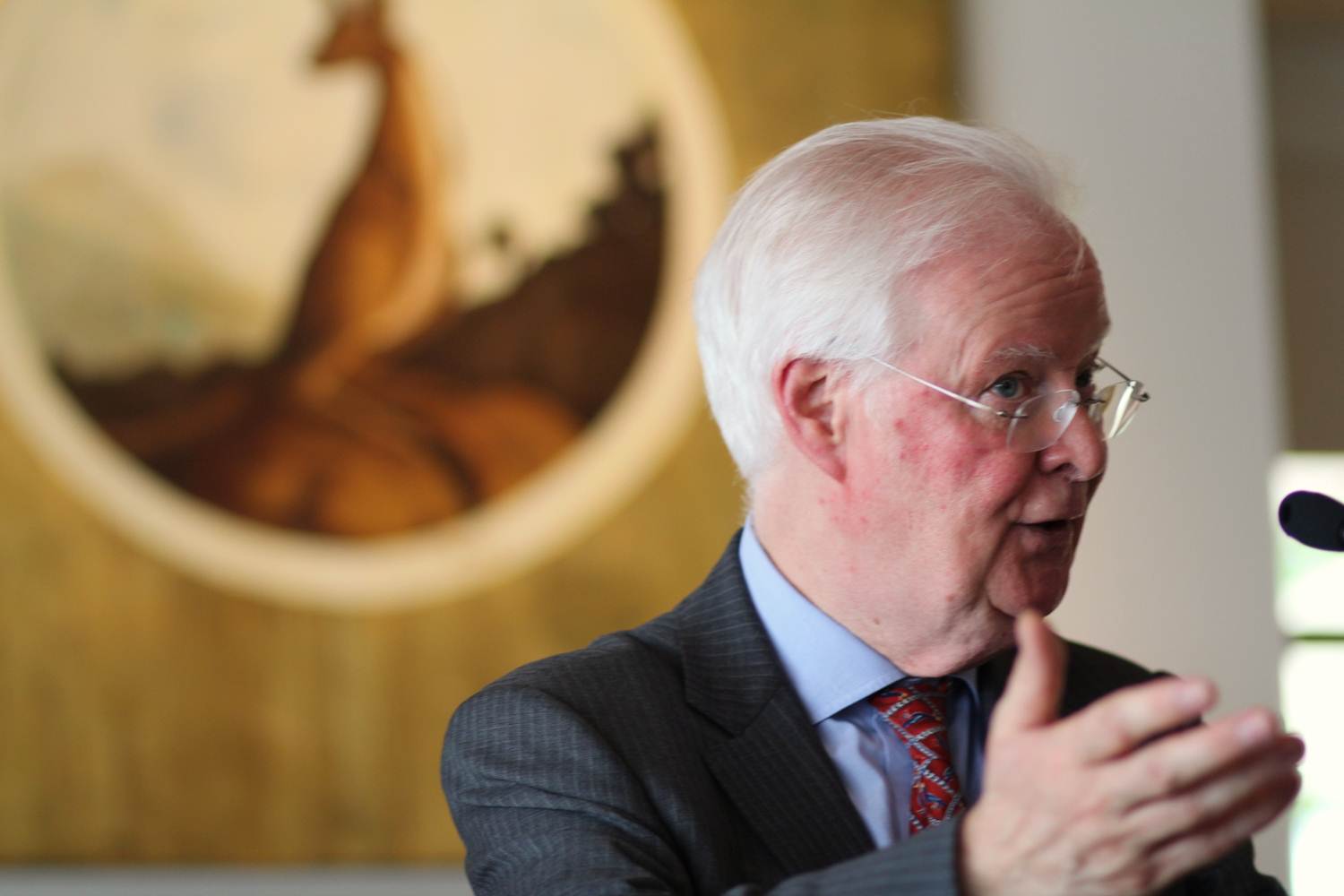A peer on the promise and perils of the pivot
Posted By Graeme Dobell on March 8, 2013 @ 13:50
In basketball, a pivot is a tactic, not a strategy.
Yet the US pivot to Asia looms as a strategic shift of fundamental import. This is high-level strategy that responds to the gravitational effect of geoeconomics as well as the push and pull of geopolitics. And it is a pivot in the sense of turning away as well as turning towards.
In Washington, the term ‘pivot’ has had to do bureaucratic battle with ‘rebalancing’.
Peter Jennings reports that Hillary Clinton held the State Department true to the pivot terminology because it had a basketball provenance that meant something to Obama. So, for the next four years at least, the pivot lives for the White House, if not for many other parts of the US polity which want to keep on balancing rather than turning.
When Barack Obama started talking about the pivot, some in Asia might have looked at the basketball definition to see what it means. Here’s one explanation of a pivot [2] that caught my eye, particularly for the use of words like ‘surprise’ and ‘explode’:
To pivot, keep one foot stationary and step around with the same foot as the direction you are going to turn. You should spin around quickly so that you can catch your opponent off guard. Make sure that you stay on the balls of your feet and maintain bend in your knees so that you can explode to the basket or up for a shot right after your pivot.
For Asia, the ultimate meaning of the pivot is a story yet to be told. If, however, you accept that it is a strategic shift of the highest importance, one big judgement is already open. The pivot marks a major moment on the final pages of the history of the Cold War: this is the US turning away from the Cold War role it carried in Europe to redefine the central role it has always claimed for itself in Asia. That turn from Europe to Asia was the starting point of the interview I did with a distinguished Brit, Lord Michael Williams of Baglan.
First, though, let me introduce Michael Williams [3] as a reporter who has gone well beyond journalism. I am a journalist who has striven with some cunning over four decades to avoid promotion beyond the reporting ranks (a tribute to lack of career progression is my proud description). Thus, I am always in awe of writing and broadcasting hacks who rise up the ranks to become successful editors. For me, five reporters not being able to settle an argument on where to go to go to lunch is the journalistic norm: the exception is the hack who embraces the desk and the budget woes, takes on the responsibility to manage and is able to plan beyond the thrills and smoke of the daily deadlines.
Given that perspective, consider the advanced level of awe for a fellow hack who did the shift to editor, and then went on to a series of important jobs at the United Nations, served as an adviser to two British Foreign Secretaries, ascended to the House of Lords in 2010 and has become a member of the BBC Trust. The Brits can still do eminence with some style.
Even as a reporter, Michael Williams was a highly cerebral hack, as you might expect from someone who had a PhD for a thesis on ‘Islam and Politics in Indonesia’. In the late 1980s and early ‘90s when he reported for the BBC in Southeast Asia and I did the same for the ABC, my main professional tease was that I worked for a service that broadcast to Asia while the BBC was still sending shortwave signals to a place it called the Far East. Such anachronisms are long gone, along with other radio skills such as the need to cut and splice audio tape (the peer and I agree that the digital age has deprived us both of one of our few true manual skills).
All this is a roundabout way of saying that when Michael Williams offers a European view on the US pivot, he is speaking as a knowledgeable observer who has a lot of inside experience in Asia. Here’s the 52 minutes of his ASPI presentation:
Williams argues that the essence and intent of the pivot is the US turning towards the future; the question is how much the US can turn away from other obligations, especially in the Middle East. He looks well beyond the definition of pivot that was in Obama’s mind and instead points to the 1904 article by Mackinder—one of the seminal texts of geopolitics—The Geographical Pivot of History. [4]
The point of Mackinder’s Pivot analysis was what it came to mean for a rising Germany. So when China hears pivot, thoughts are as likely to turn to Mackinder as basketball.
To get the sharp eight-minute version of Lord Williams, here’s the ASPI interview where he draws a distinction between the economic pivot and the strategic pivot:
Michael Williams is a peer who peers as Asia both as an outsider and as one who knows much about the internal dynamics.
Graeme Dobell is the ASPI journalism fellow. Image courtesy of Luke Wilson, ASPI.
Article printed from The Strategist: https://www.aspistrategist.org.au
URL to article: https://www.aspistrategist.org.au/a-peer-on-the-promise-and-perils-of-the-pivot/
URLs in this post:
[1] Image: http://www.aspistrategist.org.au/wp-content/uploads/2013/03/Williams1.jpg
[2] one explanation of a pivot: http://www.2athletes.com/Sports/Basketball/how-to-pivot-and-turn-basketball-moves.html
[3] Michael Williams: http://www.chathamhouse.org/media/news/view/179153
[4] The Geographical Pivot of History.: http://en.wikipedia.org/wiki/The_Geographical_Pivot_of_History
Click here to print.
